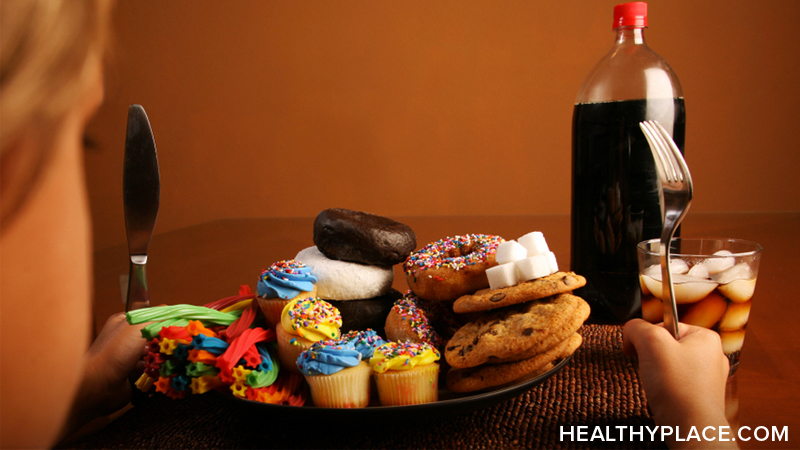Binge Eating Disorder Statistics and Facts

Binge eating disorder statistics suggest that BED is the most common eating disorder with about 2% of all adults exhibiting the symptoms of binge eating disorder. This number is an estimate though as there are no reliable statistics on the number of men with this eating disorder due to lack of research. There is also some stigma with men admitting they have an eating disorder, as they may believe it to be a "female disorder". (See articles on male eating disorders.)
Who Gets Binge Eating Disorder?
Binge eating disorder is thought to affect slightly more women than men and has been found in a wide range of ages. Compulsive overeating statistics suggest that people often wait for more than ten years to get help with binge eating disorder. Because research on binge eating disorder is relatively new, few binge eating facts are available and it is difficult to pinpoint the most common age when the eating disorder begins.
Additional compulsive overeating statistics include:1
- Among mildly obese people in self-help or commercial weight loss programs, 10% to 15% have binge eating disorder
- Binge eating disorder is even more common in those with severe obesity
- There is no binge eating fact that suggests that ethnicity has any effect on who gets BED
- Obese people with binge eating disorder often became overweight at a younger age than those without the disorder
- Obese people with binge eating disorder also might have more frequent episodes of losing and regaining weight
Facts Surrounding Cause of Compulsive Overeating
No single cause of binge eating disorder is known and research is only starting to fully understand the impact of compulsive overeating. As with any eating disorder, binge eating facts suggest that psychological, biological and environmental factors play a part in the cause of binge eating disorder. Experts generally agree that it takes a combination of factors to develop binge eating disorder.
Binge eating disorder, like all eating disorders, appears more frequently in cultures that admire thinness, like in the United States. Moreover, the desire for thinness may make a compulsive overeater feel so bad about their bingeing that this causes them to binge further to make themselves feel better.
Some of the binge eating facts we do know are:
- Binge eating disorders are closely linked with other mental illnesses
- Almost half of people with binge eating disorder have a history of depression
- Impulsive behavior is more common in those with binge eating disorder
- Binge eating disorder tends to run in families
- Binge eating often starts after strict dieting
Binge Eating Facts - Treatment and Recovery of Binge Eating
Binge eating therapy is typically the first and most important step in compulsive overeating treatment because those who suffer from binge eating disorder generally do not fully understand the reasons why they binge eat.
- Binge eating facts suggest that binge eating is an addiction
- Binge eating can often be treated at least partially through a 12-step program similar to Alcoholics Anonymous (AA)
- Binge eating facts show that binge eaters should not resort to very low-calorie diets as this can lead to further bingeing
- Medications can be used to reduce compulsive overeating triggers and help facilitate weight-loss once the binge eating behavior is under control
- On average, obese people in the best medical weight-loss programs lose 10% of their body weight but regain 66% of it back within 1 year and almost 100% of it back within 5 years
- About 25% of people who undergo cognitive behavioral therapy or interpersonal therapy are able to stop binge eating and maintain weight loss one year later2
Some compulsive overeating statistics and binge eating facts can seem overwhelmingly negative, but they underscore the need for professional help for binge eating disorder.
APA Reference
Tracy, N.
(2022, January 4). Binge Eating Disorder Statistics and Facts, HealthyPlace. Retrieved
on 2026, March 5 from https://www.healthyplace.com/eating-disorders/binge-eating-disorder/binge-eating-disorder-statistics-and-facts



